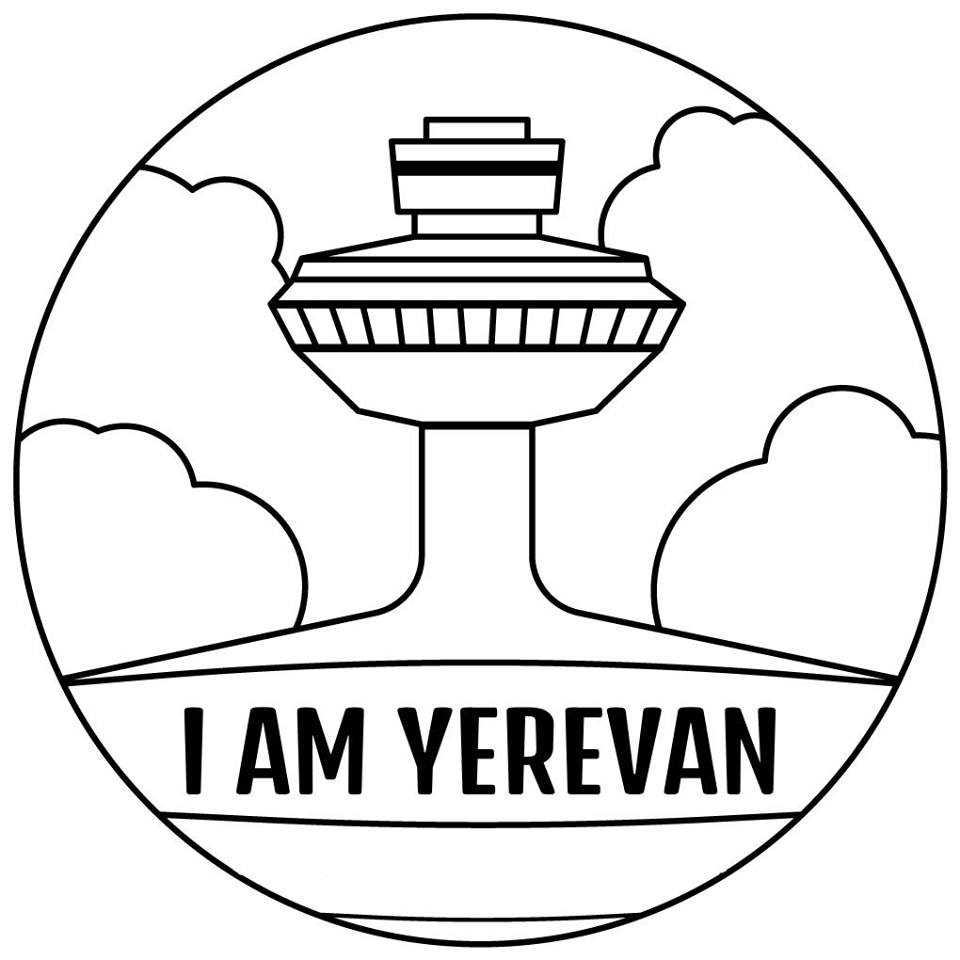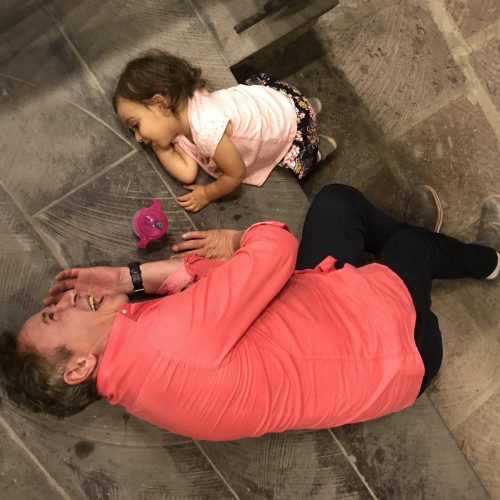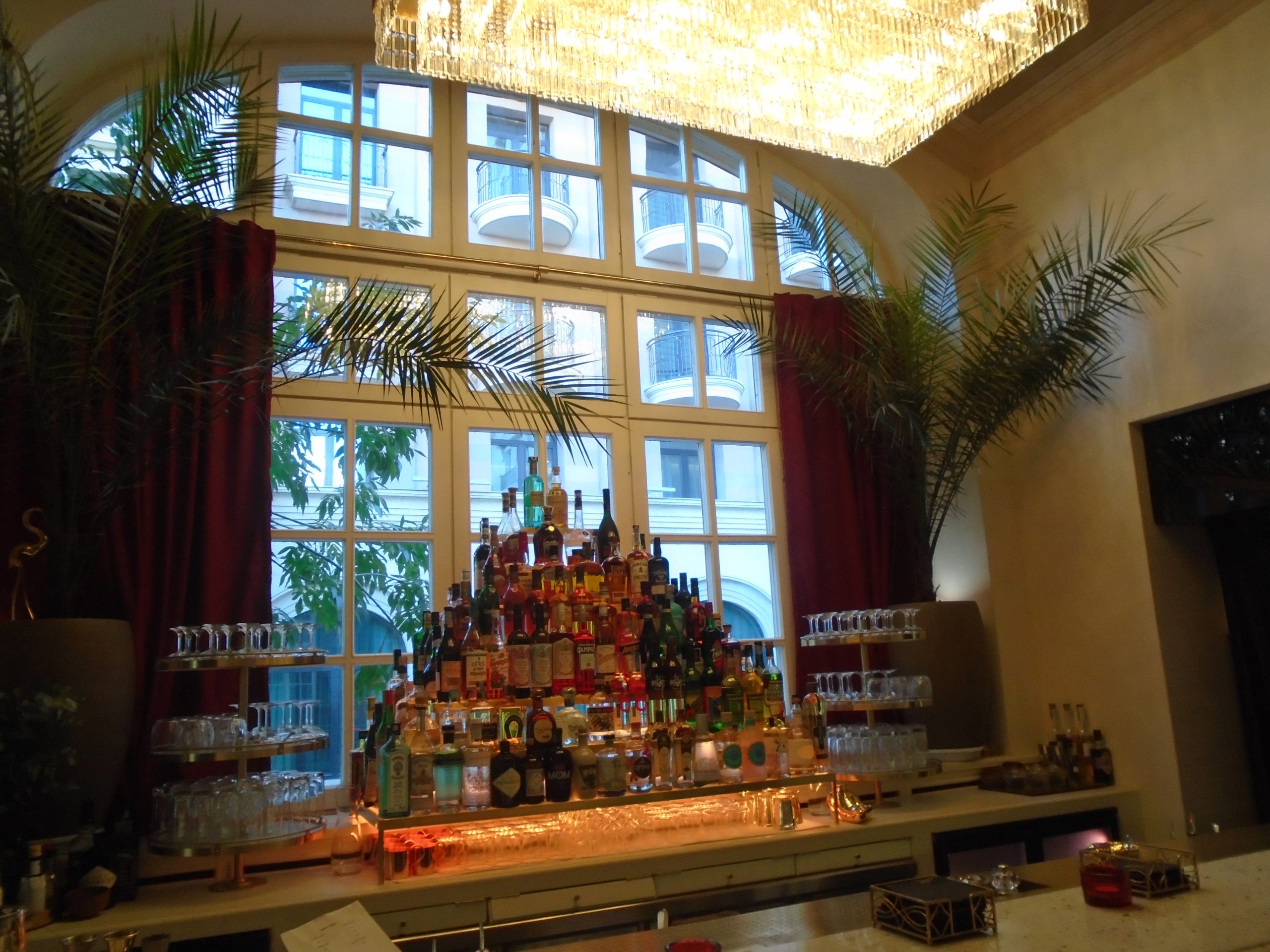
Five New Spots For Your Must-Try List
October 14, 2019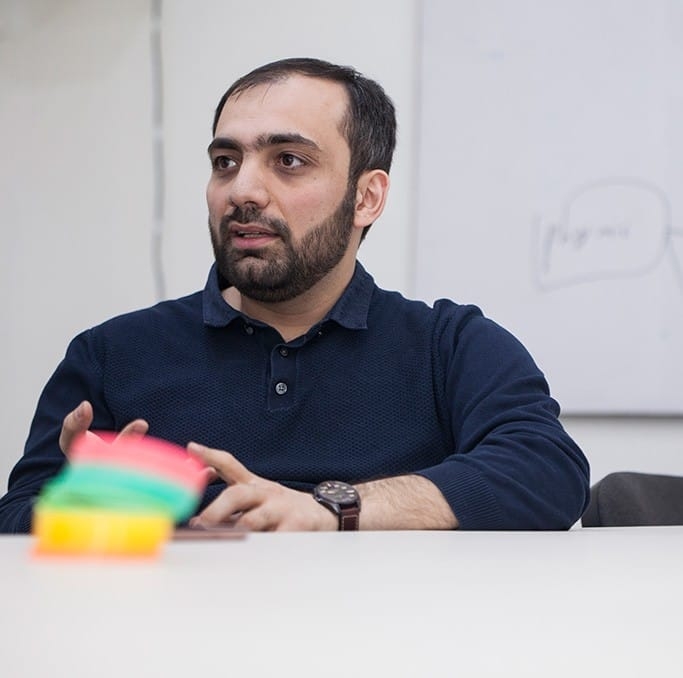
Interview with Artavazd Minasyan by Martin Harutyunyan
October 22, 2019WCIT 2019 brought together more than 2000 visitors and 100 speakers from all over the world to Armenia to discuss relevant challenges in the tech industry.
Caroline Winnett is Executive Director of Berkeley SkyDeck, UC Berkeley’s startup accelerator. At SkyDeck she leads a program that hosts over 200 companies per year. Caroline visited Armenia from Oct 6-9 to share her expertise, as well as take part in the evaluation of the Startup Competition. Along with Karen Gyulbudaghyan, Skydeck Accelerator Ambassador, Caroline also visited the American University of Armenia for the Global Tech Leaders event.
Ashot Khudgaryan: First of all, thank you for agreeing to be interviewed. I noticed that in contrary to the main tech industry, you have a marketing and communications background. How important is the art of communication for companies?
Caroline Winnett: Communication is critical for every startup, the question is - what does that mean? The first importance for founders is to be able to communicate their vision, why they are excited about it and why you should join them in their pursuit, whether you’re a co-founder, customer or investor.
Ashot: A violinist-marketer-publisher, and then the head of the UC Berkeley accelerator. The research I read once indicated that people with musical education have higher IQs. How has that helped you in the journey of becoming who you are today?
Caroline: Well, here's how it helped me specifically. In learning an instrument, you understand very deeply that there are no shortcuts: I can't skip a day of practicing and then make up for it. It's not possible. It's like saying - I can make time go faster. You have to sit down every day with that instrument and practice, and then work, and then practice again, sort of like a startup. This requires daily, hourly work, otherwise, it won't work. I can't take some time off and it requires my full attention.
Ashot: So it's like you have to spend 10000 hours doing one thing to get really good at it.
Caroline: Yes.
Ashot: You have been interacting with startups from all over the world, including the “third world countries”. What is the difference between the founders from these countries compared to founders from developed ecosystems like the US?
Caroline: I have to say something about immigrants, who come from countries that are not so blessed - when they come to the US, they hustle. They work it, they have zero sense of entitlement, zero sense of anything handed to them. As a result of who they are - they are hard-working. That's a characteristic of many immigrants from the less developed world. I have seen this many times and observed it personally. My co-founder and first husband was from India and he worked harder than anyone else.
Ashot: Because of the challenges they face in a non-familiar environment?
Caroline: Because nothing is handed to you in a developing country, there are no fallbacks, there is no “there are jobs out there, I am going to get one”, they are in a much more competitive environment just to survive professionally and that brings a sense of "I must work as hard as I need to, not as hard as I want to, not as hard as I should, but as hard as I need to", and that's a different mindset.
Ashot: One thing I noticed today from the pitches was that people with the US background were good at pitching and we saw the opposite from the other founders.
Caroline: Keep in mind that founders who pitched, let's say, very well, have companies that were less technical, so they were storytelling, which is great, more based on an idea and the execution of the idea. And the founders, whose pitches were more difficult to take in, are building highly technical products, toothbrushes are easy to understand, but accelerated hardware isn’t, but if it was presented in front of the right audience, and I know that because that same pitch was presented in front of 600 Skydeck investors (as Grovf is a Skydeck alumni) and it appealed to them, as they were looking for highly technological products.
Ashot: Good skills vs. slick.
Caroline: So, there is “really good at pitching” and then there is “slick”, and I know I’m being sold something, which are two different things, and we typically find founders that need to be coached to present themselves much more aggressively, but if it happens, the company can go into the “no go” pile pretty quickly, but if it's a very excited founder, thrilled with their idea, they need to be coached. But you need to find out what are the intentions of this founder.
Ashot: Are great pitching skills a red flag?
Caroline: Every investor is going to be swayed by a first-class pitch, the question is: does that pitch cover up missing things, and a good investor will poke around and see if there is more than a pitch. I’ve seen many many times, that when you go around and realize it's a great pitch and that's all it is. Those things can be found very frequently. I do think that there is a danger for talented people to pitch a lot, there are too many accelerators, too many places to pitch, and they may actually lose too much time. And at Skydeck, we are watching out, because you want to make sure that the founders are not wasting too much time on pitching competitions, and are building their product.
Ashot: One last thing I want to ask is that the Armenian startup ecosystem has made a small name for itself, and one of the reasons you are here is that it actually started to produce quality startups. What is needed in your opinion to allow the ecosystem to grow better?
Caroline: First, you can't make time go faster, it takes time to grow an ecosystem. But there is a lot that can be done virtually compared even to a few years ago, there are many resources online and courses that you can participate so that you can learn from the best about your startup and about pitching. The ecosystem here excels at the talent and the country has a lot to do in this, creating programs that support young students. And then it's very important that the investors that come out of this ecosystem must look and learn how things are done in Silicon Valley because they approach investment differently.
Ashot: And a follow up on that. Up to this point, there is no classic accelerator that invests and maybe even provides space for startups for short-term programs in Armenia. Do you think our ecosystem has matured enough to produce that kind of accelerator?
Caroline: Maybe not yet. And the reason is that these accelerators rely on the surrounding ecosystem to support them, and that ecosystem needs to have advisors in the field, the customers who buy the product and the investors who would invest, and that is not really developed here. I think the country should focus on programs that would take advantage of connecting the startups to accelerators that can do that. When you have a batch of startups that have all been invested in and you don't have a whole bunch of investors to come and listen to their pitch at Demo Day, that's going to be really tough [laughs].
Ashot: Thank you very much.
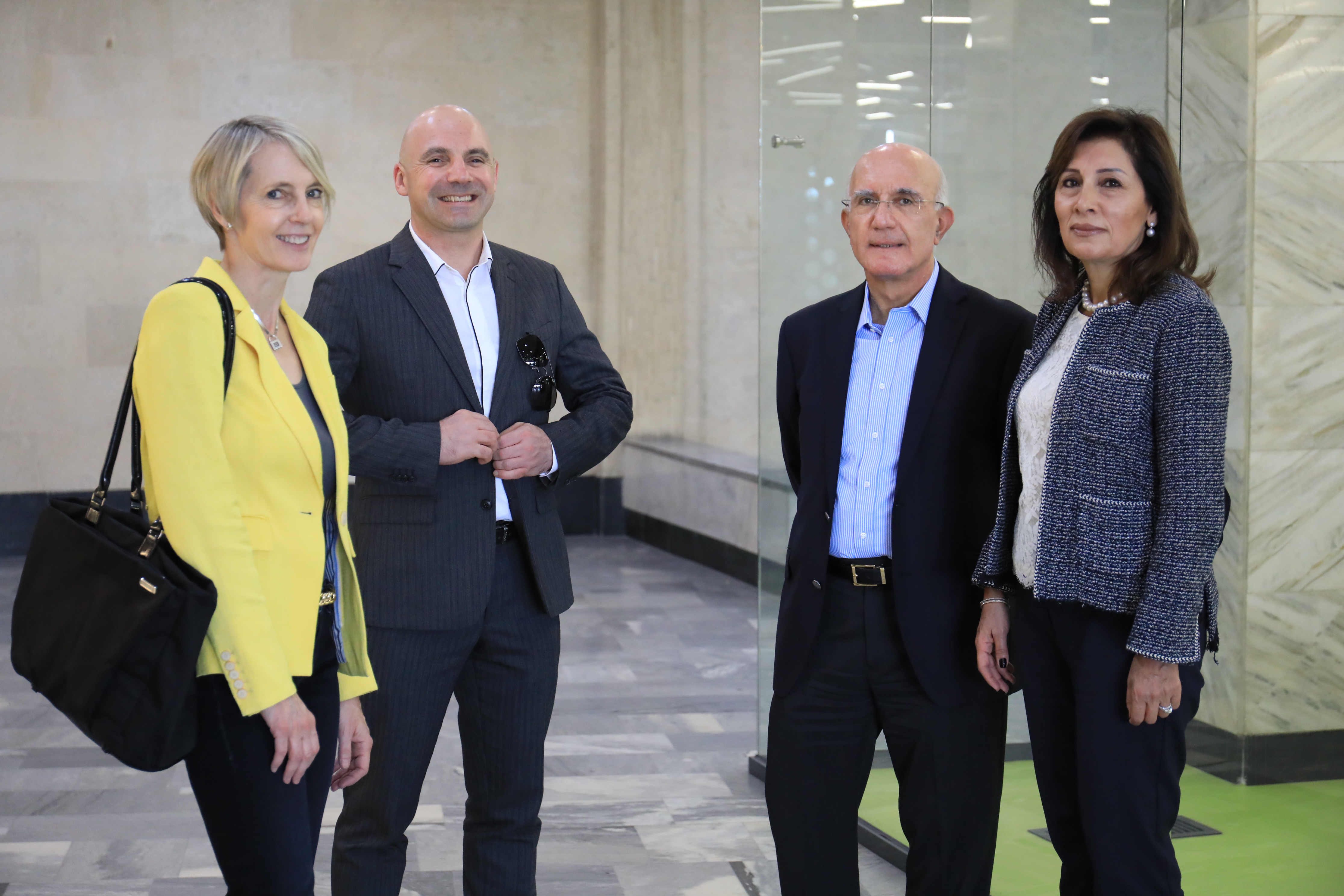
Caroline Winnett, Karen Gyulbudaghyan, with Rafi and Sevan Baghdjian at Global Tech Leaders, Innovators and Entrepreneurs Hosted at AUA. Photo by Hayk Frangulyan

Ashot Khudgaryan - helps startups crystallize their vision & goals, create stories that communicate core values and brand culture.
A passionate educator, Ashot has created a comprehensive course on business development in tech, aiming to increase the industry capacity.
